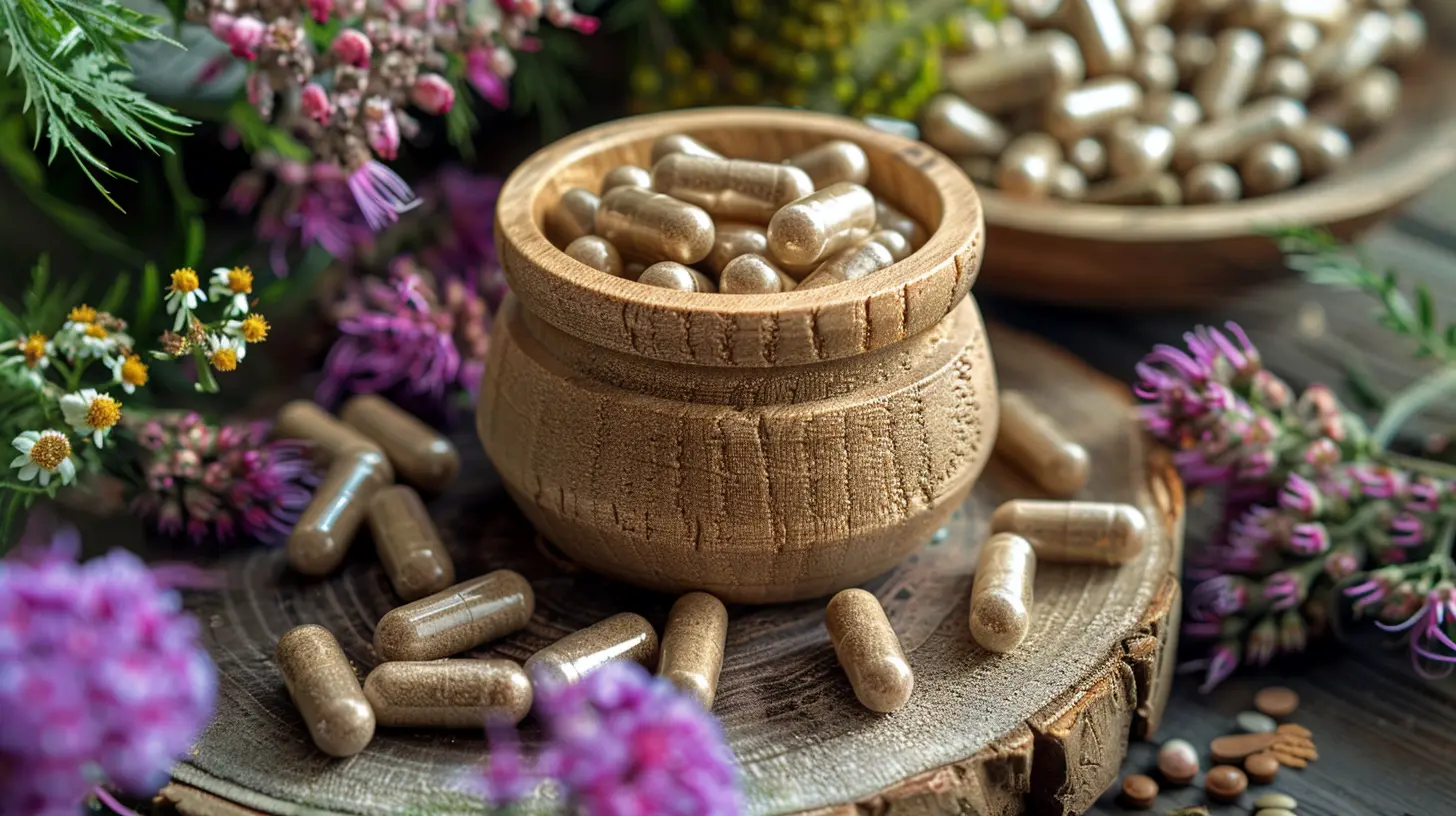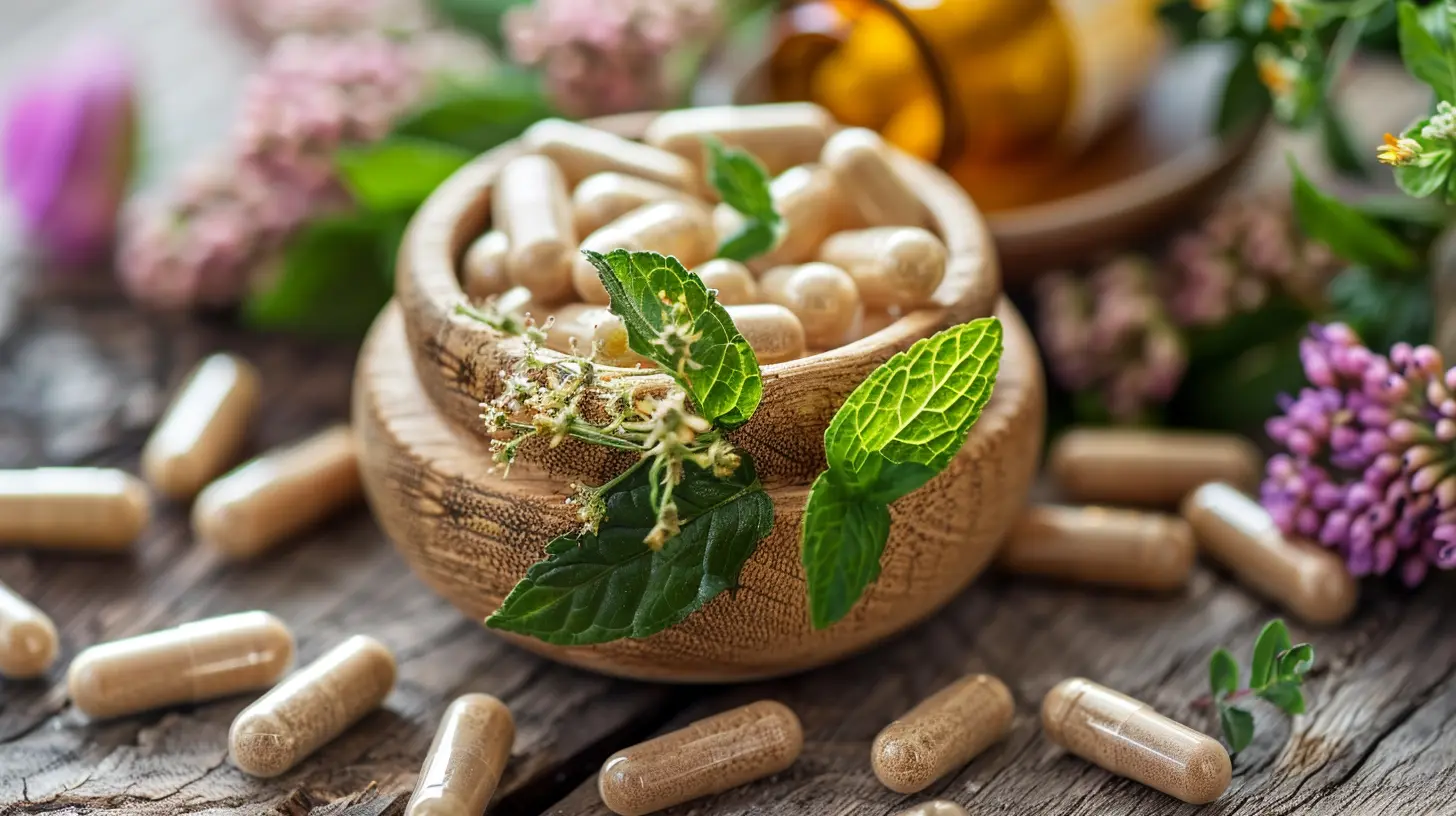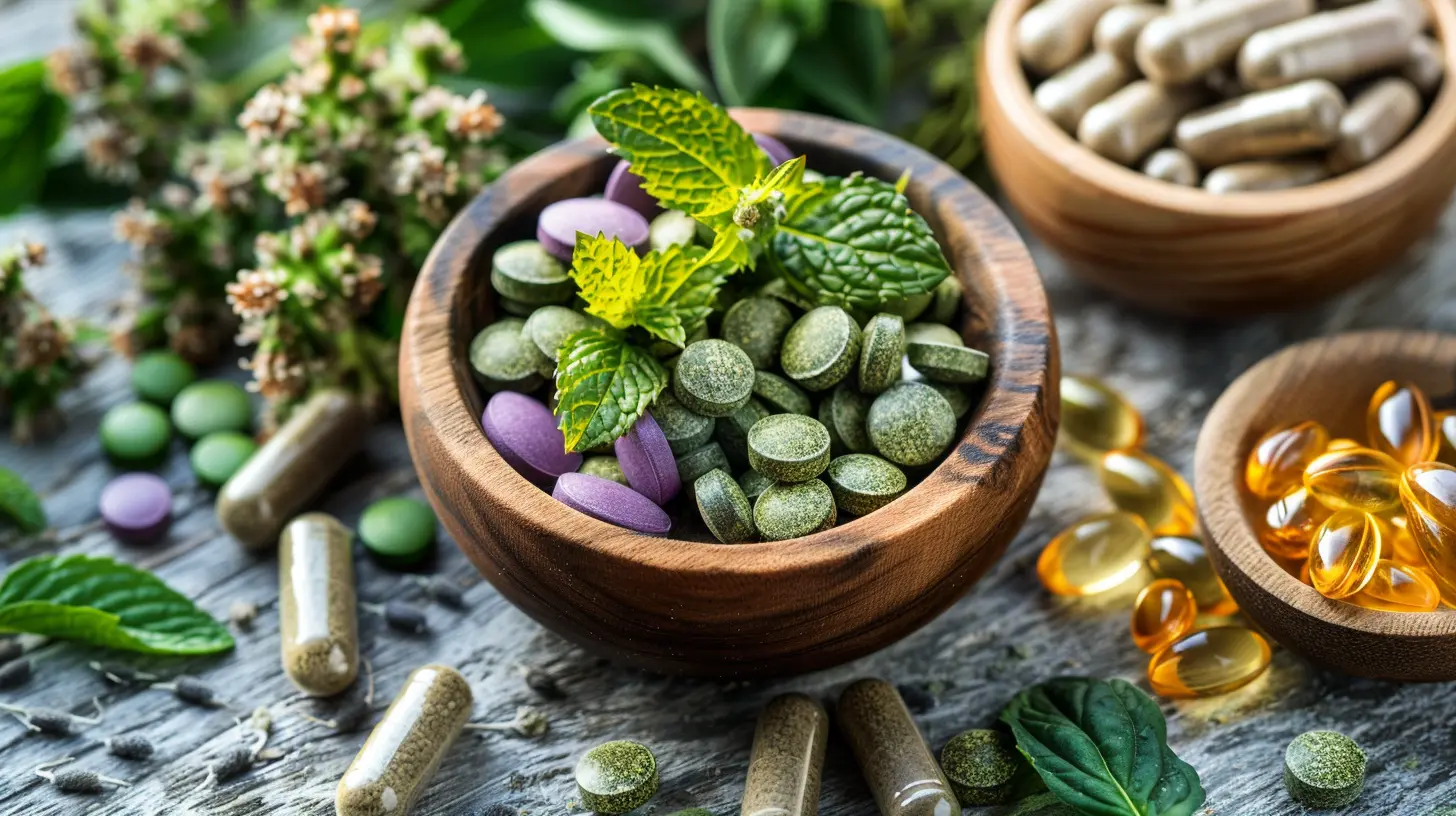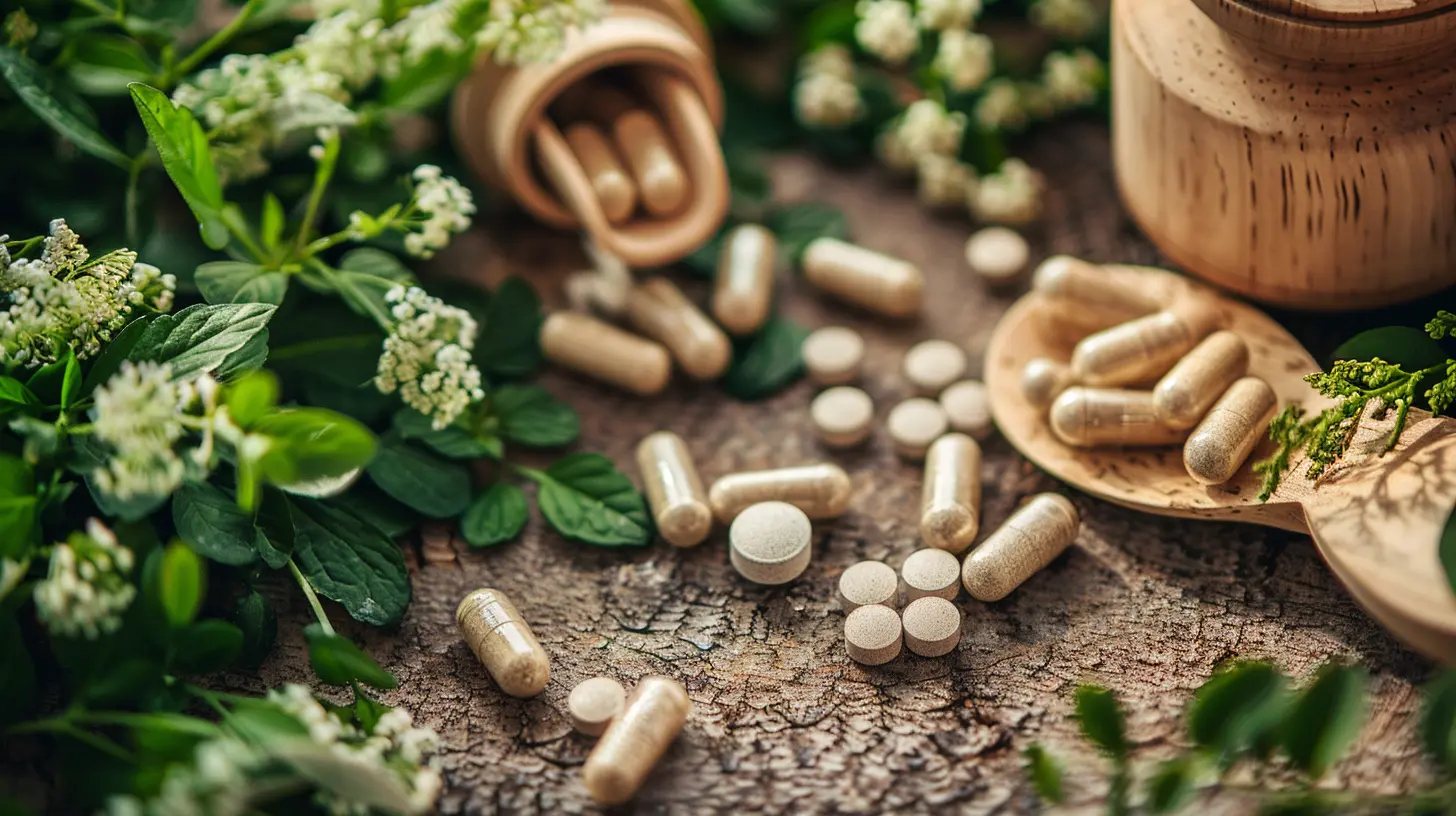Natural Supplements That Can Support Gut Healing
5 July 2025
Your gut is the powerhouse of your body—it’s where digestion happens, nutrients are absorbed, and even a big chunk of your immune system resides. When your gut isn’t happy, it can throw everything off balance—bloating, digestive discomfort, fatigue, skin issues, and even mood swings.
But here's the good news: nature has provided us with powerful supplements that can help restore gut health. Whether you’re dealing with leaky gut, bloating, IBS, or just want to improve digestion, there are natural remedies that can work wonders.
In this article, we’ll dive into some of the most effective natural supplements that can support gut healing. Let’s get started!

1. Probiotics – The Good Bacteria Your Gut Craves
Probiotics are the friendly bacteria that live in your gut and play a crucial role in digestion, immunity, and overall gut health. When your gut microbiome is out of balance (dysbiosis), harmful bacteria can take over, leading to digestive issues like bloating, constipation, and diarrhea.How Probiotics Help:
- Restore a healthy balance of gut bacteria- Improve digestion and nutrient absorption
- Strengthen the intestinal lining
- Support immune function
Best Sources of Probiotics:
- Fermented foods like yogurt, kefir, sauerkraut, kimchi, and miso- High-quality probiotic supplements with diverse strains, like Lactobacillus and Bifidobacterium

2. Prebiotics – The Food for Your Gut Bacteria
Probiotics need fuel to thrive, and that’s where prebiotics come in. These are types of fiber that feed the beneficial bacteria in your gut, helping them multiply and keep harmful bacteria in check.How Prebiotics Help:
- Enhance the growth of good bacteria- Improve digestion by promoting a balanced microbiome
- Aid in regular bowel movements
Best Sources of Prebiotics:
- Garlic, onions, leeks, asparagus, bananas, and oats- Prebiotic fiber supplements (such as inulin or fructooligosaccharides)

3. L-Glutamine – Repairing the Gut Lining
L-Glutamine is an amino acid that acts as fuel for your intestinal cells. If you have leaky gut syndrome (where the intestinal lining becomes too permeable), L-Glutamine can help seal up those weakened gut walls.How L-Glutamine Helps:
- Repairs and strengthens the gut lining- Reduces inflammation in the digestive tract
- Supports immune function
Best Sources of L-Glutamine:
- Bone broth, seafood, eggs, and meat- L-Glutamine supplements in powder or capsule form

4. Collagen Peptides – Strengthening the Gut Barrier
Collagen is not just great for your skin—it’s also essential for gut health. It contains amino acids like glycine and proline, which help repair and maintain the gut lining.How Collagen Helps:
- Supports the integrity of the intestinal lining- Reduces inflammation and promotes gut healing
- Aids in digestion by supporting stomach acid production
Best Sources of Collagen:
- Bone broth- Collagen protein powder (hydrolyzed collagen peptides)
5. Aloe Vera – Nature’s Soothing Remedy
Aloe vera is well-known for its skin benefits, but it’s also incredibly beneficial for gut health. It has anti-inflammatory properties that can soothe the digestive tract and promote healing.How Aloe Vera Helps:
- Reduces gut inflammation- Soothes irritation in the stomach lining
- Supports healthy digestion and regularity
Best Sources of Aloe Vera:
- Pure aloe vera juice (without added sugars or preservatives)- Aloe vera gel supplements
6. Digestive Enzymes – Enhancing Digestion
If you often feel bloated or experience indigestion after meals, digestive enzymes might be the missing link. These enzymes help break down food more efficiently, allowing your body to absorb nutrients properly.How Digestive Enzymes Help:
- Improve digestion and prevent bloating- Reduce food sensitivities by breaking down proteins, fats, and carbohydrates
- Support nutrient absorption
Best Sources of Digestive Enzymes:
- Papaya (contains papain) and pineapple (rich in bromelain)- Digestive enzyme supplements with protease, lipase, and amylase
7. Slippery Elm – The Gut’s Protective Shield
Slippery elm is a plant that has been used for centuries to calm the digestive system. It forms a gel-like substance when mixed with water, coating and soothing the gut lining.How Slippery Elm Helps:
- Protects and heals the gut lining- Reduces irritation from acid reflux, ulcers, and leaky gut
- Supports bowel regularity
Best Sources of Slippery Elm:
- Slippery elm tea or lozenges- Slippery elm powder or capsules
8. Licorice Root – A Natural Gut Healer
Licorice root has been used in traditional medicine for its ability to soothe the digestive system and reduce inflammation. Deglycyrrhizinated licorice (DGL) is a form that’s often used for gut health.How Licorice Root Helps:
- Helps heal ulcers and leaky gut- Reduces gut inflammation
- Supports mucus production, which protects the stomach lining
Best Sources of Licorice Root:
- DGL licorice supplements- Licorice root tea
9. Omega-3 Fatty Acids – Fighting Inflammation
Omega-3s are essential fatty acids with strong anti-inflammatory properties. Since chronic gut inflammation can lead to digestive issues, incorporating omega-3s can aid in gut healing.How Omega-3s Help:
- Reduce gut inflammation- Strengthen the intestinal lining
- Support a healthy gut microbiome
Best Sources of Omega-3s:
- Fatty fish like salmon, sardines, and mackerel- Chia seeds, flaxseeds, and walnuts
- Omega-3 fish oil supplements
10. Peppermint Oil – Easing Digestive Discomfort
If you struggle with bloating, gas, or IBS symptoms, peppermint oil is a natural remedy worth trying. It helps relax the muscles in the digestive tract, reducing spasms and discomfort.How Peppermint Oil Helps:
- Relieves bloating and gas- Eases symptoms of IBS and indigestion
- Has antimicrobial properties that support gut health
Best Sources of Peppermint Oil:
- Enteric-coated peppermint oil capsules- Peppermint tea
Final Thoughts
Your gut plays a vital role in your overall well-being, so taking care of it should be a top priority. The right natural supplements can provide the necessary support to heal and maintain a healthy gut environment.That said, supplements work best when combined with a gut-friendly diet—one rich in whole foods, fiber, and fermented foods. Limiting processed foods, sugar, and artificial additives can also make a world of difference.
If you’re dealing with ongoing digestive issues, it’s always best to consult a healthcare professional before starting any new supplements. Everyone’s gut is unique, and what works for one person might not work for another.
By incorporating some of these natural supplements into your daily routine, you can take a big step toward better digestion, reduced inflammation, and a happier gut!
all images in this post were generated using AI tools
Category:
Gut HealthAuthor:

Jackson Mahoney
Discussion
rate this article
1 comments
Katalina Sweeney
Whispers of ancient remedies linger in nature's shadows—could the secrets to gut healing be hidden within? Explore the enigmatic world of natural supplements and uncover the power that lies beneath, waiting to restore balance within.
July 25, 2025 at 2:27 AM

Jackson Mahoney
Absolutely! Nature offers a treasure trove of ancient remedies that can significantly support gut healing. Let's delve into these natural supplements and their restorative powers!


